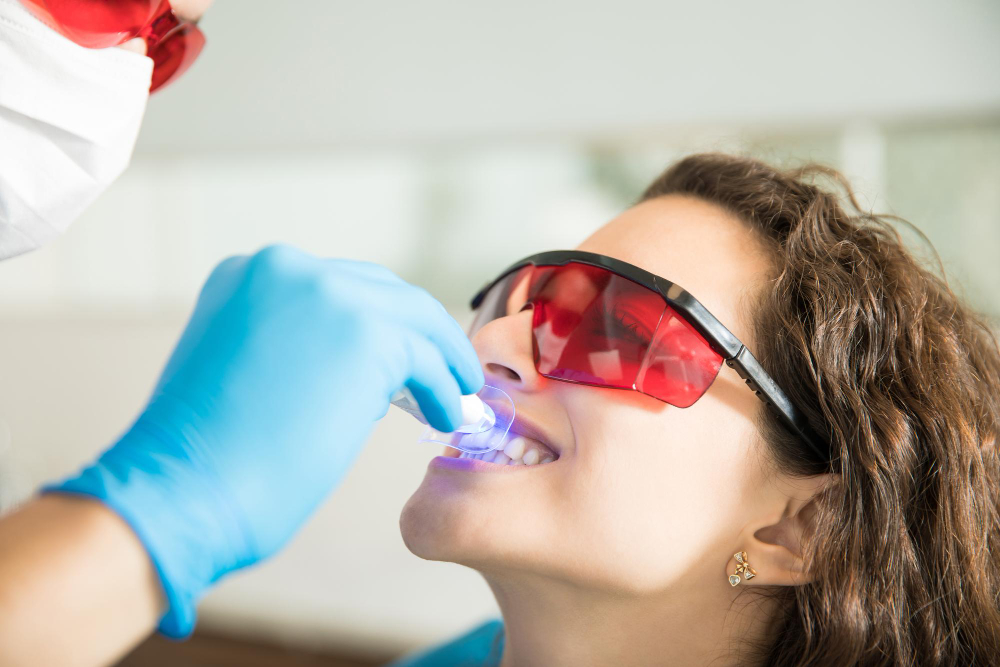
A bright,
white smile is often seen as a symbol of health, confidence, and beauty. Over
time, however, our teeth can become stained or discolored due to various
factors such as aging, coffee, tea, red wine, smoking, or poor dental hygiene.
Fortunately, there are several effective teeth whitening methods available
today—both at home and in the dentist's office. In this blog post, we’ll
explore the most popular whitening techniques and what you should consider
before choosing the best one for you.
1. Professional Teeth Whitening (In-Office Treatment)
Professional
whitening performed by a dentist is one of the fastest and most effective ways
to achieve a noticeably whiter smile. This procedure typically uses a
high-concentration bleaching agent like hydrogen peroxide or carbamide
peroxide, sometimes activated by a special light or laser.
Pros:
- Immediate and dramatic results
- Safe and supervised by
professionals
- Can lighten teeth by several
shades in one session
Cons:
- More expensive than at-home
methods
- Possible temporary tooth
sensitivity
2. At-Home Whitening Kits (From Dentists)
Some
dentists offer take-home whitening kits that include custom-fitted trays and
professional-grade whitening gel. These kits are designed for daily use over
one to two weeks.
Pros:
- More affordable than in-office
treatment
- Custom trays ensure better
coverage
- Professional-strength formula
Cons:
- Slower results compared to
in-office treatments
- Requires discipline and
consistency
3. Over-the-Counter Whitening Products
There are
many OTC products available, including whitening strips, toothpaste, pens, and
trays. These products contain lower concentrations of whitening agents and are
more budget-friendly.
Pros:
- Easily accessible and affordable
- Convenient to use at home
Cons:
- Results are less dramatic and
take longer
- Risk of uneven whitening or gum
irritation
- Not as effective on deep stains
4. Natural Whitening Remedies
Some people
prefer natural methods like baking soda, hydrogen peroxide rinses, oil pulling
(using coconut oil), or activated charcoal. While these may have some minor
whitening effects, they are not scientifically proven to be as effective as
professional treatments.
Pros:
- Low cost
- Easy to try at home
Cons:
- Limited effectiveness
- Potential for enamel damage if
overused or used incorrectly
Important Considerations Before Whitening
- Consult your dentist first: Not all types of discoloration
respond well to whitening treatments. It's important to determine the
cause of the stains.
- Existing dental work: Whitening agents do not work
on crowns, veneers, or fillings.
- Tooth sensitivity: If you have sensitive teeth,
some whitening products may worsen the issue.
- Consistency matters: Maintaining good oral hygiene
and avoiding stain-causing foods and drinks can help prolong your
whitening results.
